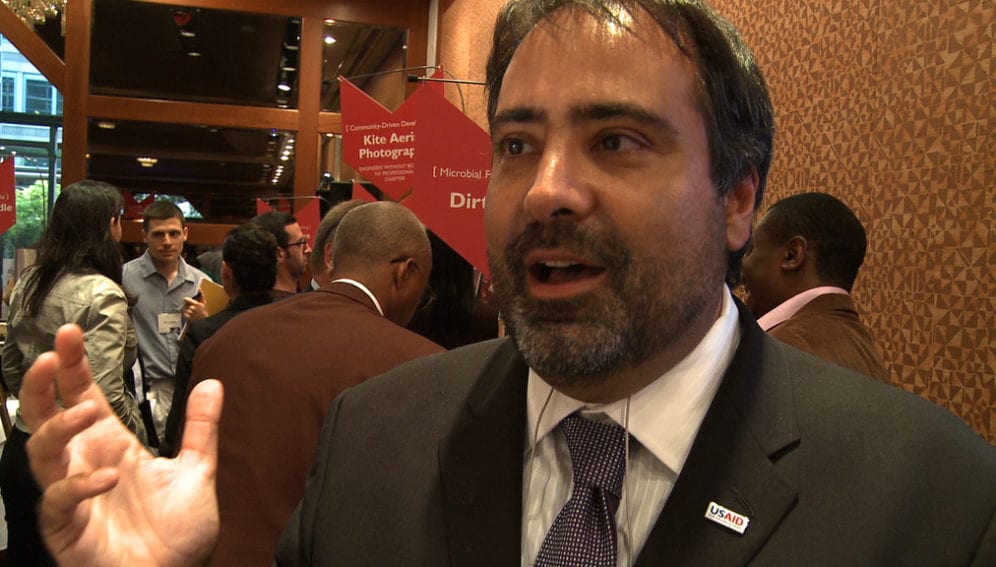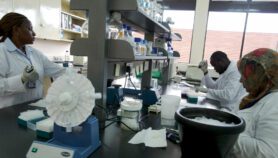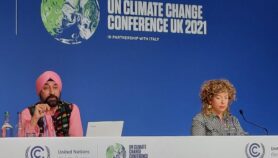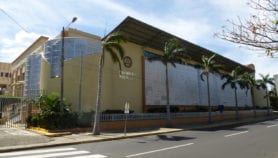By: Mićo Tatalović
Send to a friend
The details you provide on this page will not be used to send unsolicited email, and will not be sold to a 3rd party. See privacy policy.
The chief scientist for the US Agency for International Development, Alex Dehgan, will leave his post tomorrow, he said in an email this week in which he also issued a stern warning about the dangers of reversing the recent gains in embedding independent scientific advice to USAID.
Dehgan’s appointment to the newly created post in 2010 was seen as the agency stepping up its efforts to link science and development, and supporting Obama administration's push for science diplomacy, after a period of neglect.
“The role of chief scientist is currently empty,” Dehgan tells SciDev.Net. “I believe USAID will be searching for a chief scientist to replace me and will start this search soon.”
Dehgan acted as both science and technology adviser to the Administrator at USAID and as a head of USAID’s Office of Science and Technology. “The current senior deputy director of the Office of Science and Technology will take over the leadership of the office in the near term,” he says.
He adds he is leaving because his three-year term has passed. “I am considering options for my next steps and trying to figure out where I can be most transformative and what field I want to disrupt,” he adds.
“It has been an honour and a privilege to serve,” says an email sent by Dehgan, who has been with the agency for nearly ten years, working on diverse projects including helping build the first national park in Afghanistan, engaging Iran through science diplomacy and using science to help rebuild Iraq.
“As the agency’s first dedicated chief scientist in more than two decades, my focus has been to restore science to its rightful place,” he says, adding that the agency has done “big things” thanks to a wide range of collaborations.
This included launching five Grand Challenges for Development, including Saving Lives at Birth and Making All Voices Count, as well as multiple prizes on atrocity prevention, and fighting people trafficking.
“The challenges faced by the developing world are not theirs alone, but in a globalised world, they will affect all nations.”
Alex Dehgan, USAID
During Dehgan's time there USAID created an independent Office of Science and Technology, launched the Higher Education Solutions Network and development labs, and a new fellowship programme to engage young US scientists, engineers and innovators in development.
“The agency again has data scientists … and the first geographer in the agency’s history, improving our ability to understand problems and their constraints, apply foresight analysis and radically increase our agency’s transparency,” he says.
The ‘open-source development’ approach Dehgan helped introduce meant the agency crowdsourced globally the best innovation ideas, generating “stunning new innovations from sectors we never would have traditionally approached”.
“More importantly, nearly half of the ideas are now coming from the developing world, recognising that talent is everywhere, but opportunity is not,” says Dehgan. “Funding these innovators and innovations won’t be enough, but we need to build the bridges that elevate the best ideas to scale.”
USAID has also linked up with the US National Science Foundation and National Institutes of Health to partner US scientists with those from developing countries and expand the US bilateral science funding model globally to 90 countries around the world, including Burma, Libya and Pakistan.
And, Dehgan says, “depending on congressional approval, we will create a new institution devoted to building the ecosystem that brings together science, technology, innovation and partnership”.
“However this work is far from done,” he says. “It can be reversed. It can be forgotten by the tyranny of the daily demands of the present. I could be not only the first dedicated chief scientist in two decades, but also the agency’s last for the next two.”
“The agency needs the scientific and innovation community to keep pushing for the transformations we have set into motion, to exceed the limits of our elasticity against change,” he says.
Dehgan adds that, while science is not sufficient to solve the challenges ahead by itself, it can help provide new tools to change the reality of what is possible and allow developing nations to fast-forward their development.
“These countries don’t need to repeat the last 200 years of industrialisation: they can ‘leapfrog’ the past to build systems of the future,” he says. “The possibilities are limitless.”
“The challenges faced by the developing world are not theirs alone, but in a globalised world, they will affect all nations.”














